1. Tower Records (Los Angeles, CA and Over 100 Other Locations)
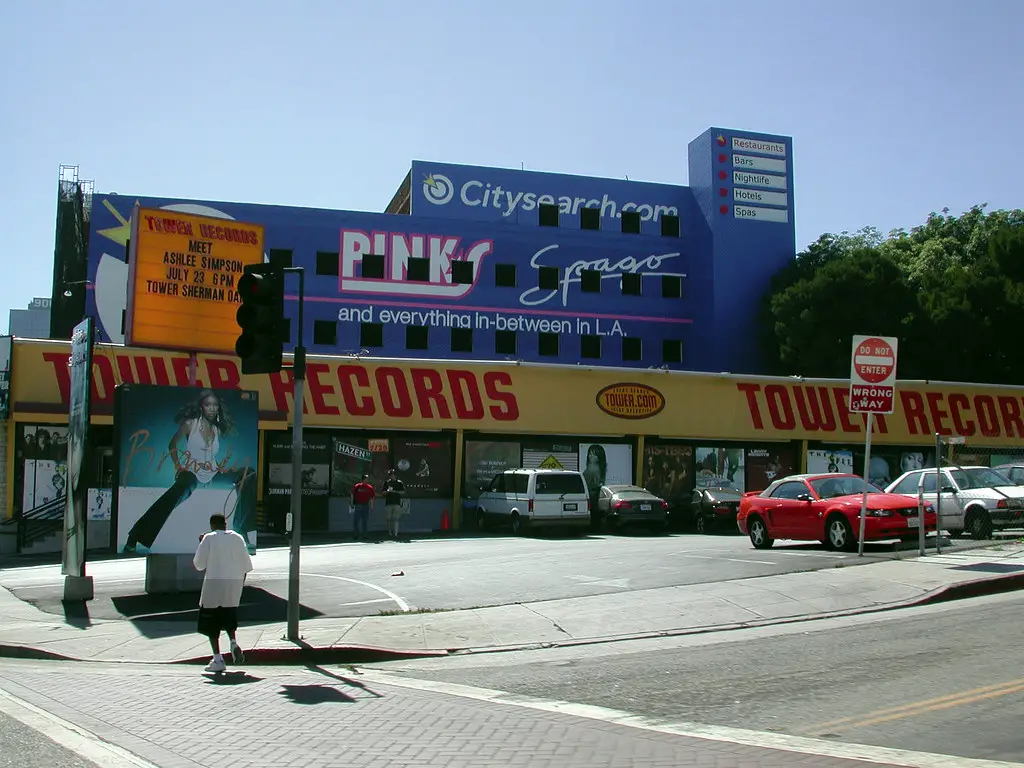
Flickr
Tower Records wasn’t just a store—it was an empire. The flagship on Sunset Boulevard was a mecca for music lovers, offering a dizzying array of vinyl spanning every genre imaginable. From the latest chart-toppers to obscure underground imports, Tower had it all. Celebrities browsed alongside everyday fans, and in-store performances turned shopping into an event. It was a place where you didn’t just buy music; you experienced it. While Tower’s physical stores have disappeared, its legacy as a cultural phenomenon lives on, reminding us of an era when music felt larger than life. Note: There are still some operating Tower Records stores in Asia.
2. Rough Trade (London, UK)
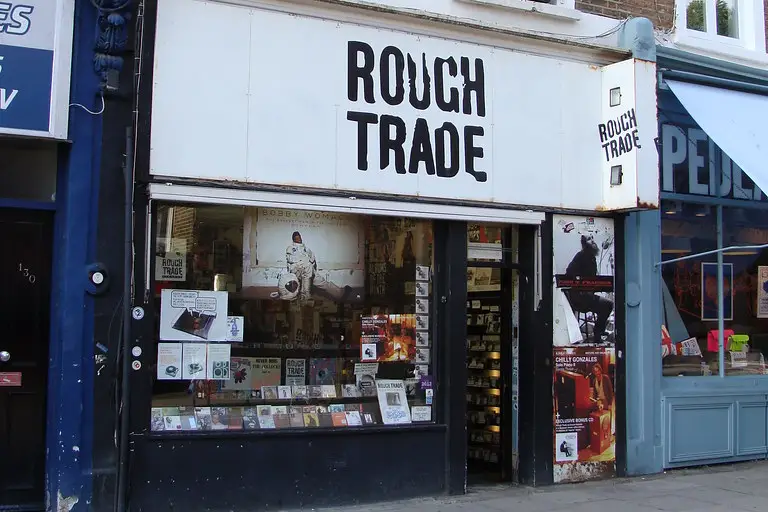
Wikimedia Commons
Rough Trade wasn’t just about selling records—it was about building a community. This small store in Ladbroke Grove became a cornerstone of the UK punk and indie scenes, championing bands like The Smiths and Joy Division before they hit the mainstream. Staffed by passionate music lovers, Rough Trade felt more like a club for vinyl addicts than a business. The shop later expanded into a record label, cementing its role as a tastemaker. For those who walked its aisles in the ’70s and ’80s, it wasn’t just a store—it was a revolution.
3. Bleecker Bob’s Records (New York City, NY)
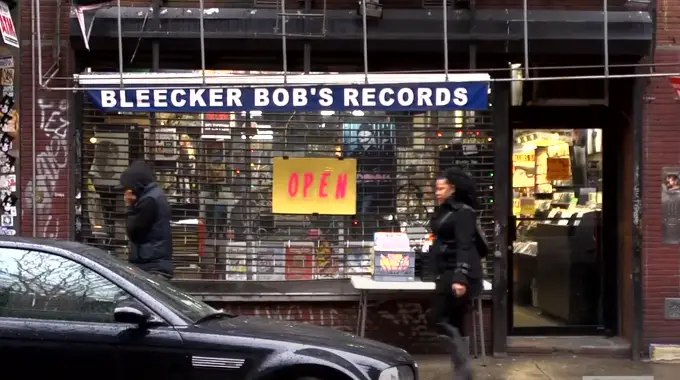
YouTube
No list of iconic record stores would be complete without Bleecker Bob’s. Nestled in Greenwich Village, this store was chaotic, cramped, and utterly magical. Known for its punk and new wave selection, it became a hangout for artists, musicians, and misfits. If you were looking for a rare Ramones bootleg or the latest Talking Heads single, Bleecker Bob’s was the place to be. Sure, the staff could be gruff, but that was part of the charm. It wasn’t just a store; it was a gritty slice of NYC’s vibrant music history.
4. Amoeba Music (Berkeley, CA)
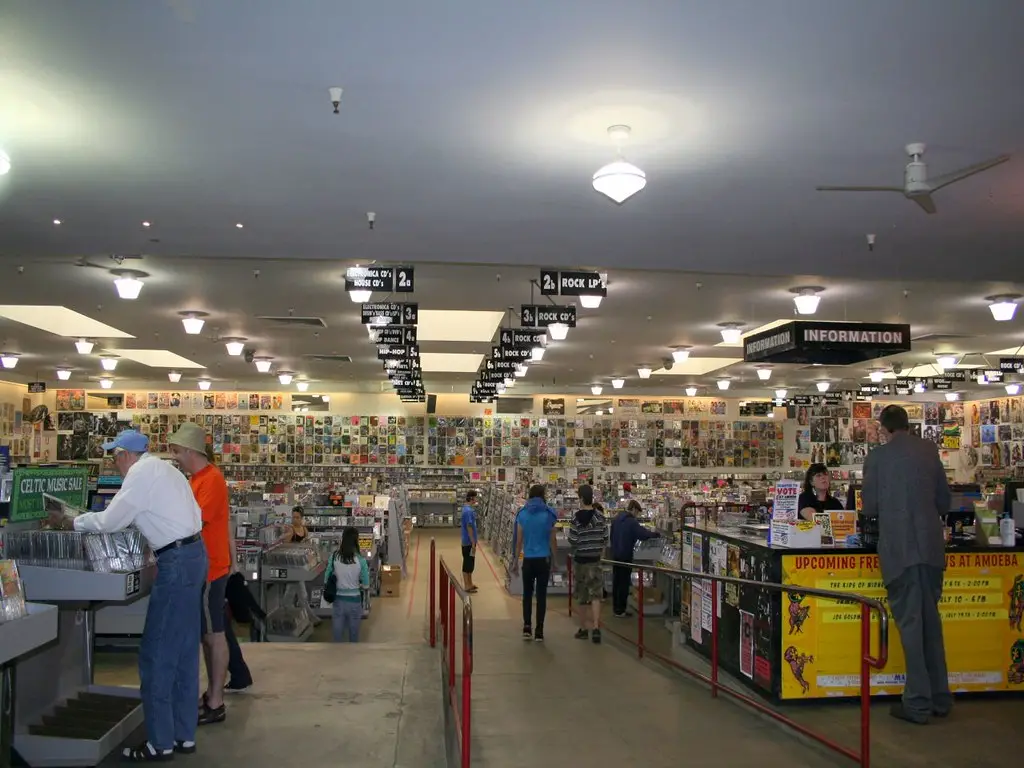
Flickr
While Amoeba’s fame exploded in the ’90s, its roots trace back to the late ’80s in Berkeley. The store quickly became a haven for audiophiles with its sprawling collection of new and used records. Walking into Amoeba felt like stepping into a treasure trove where every crate held potential gold. Its commitment to music culture made it more than a retail space—it became a sanctuary for discovering rare albums and connecting with fellow music fans. Even as vinyl waned in popularity, Amoeba stayed true to its mission: making music accessible to everyone.
5. Music Millennium (Portland, OR)
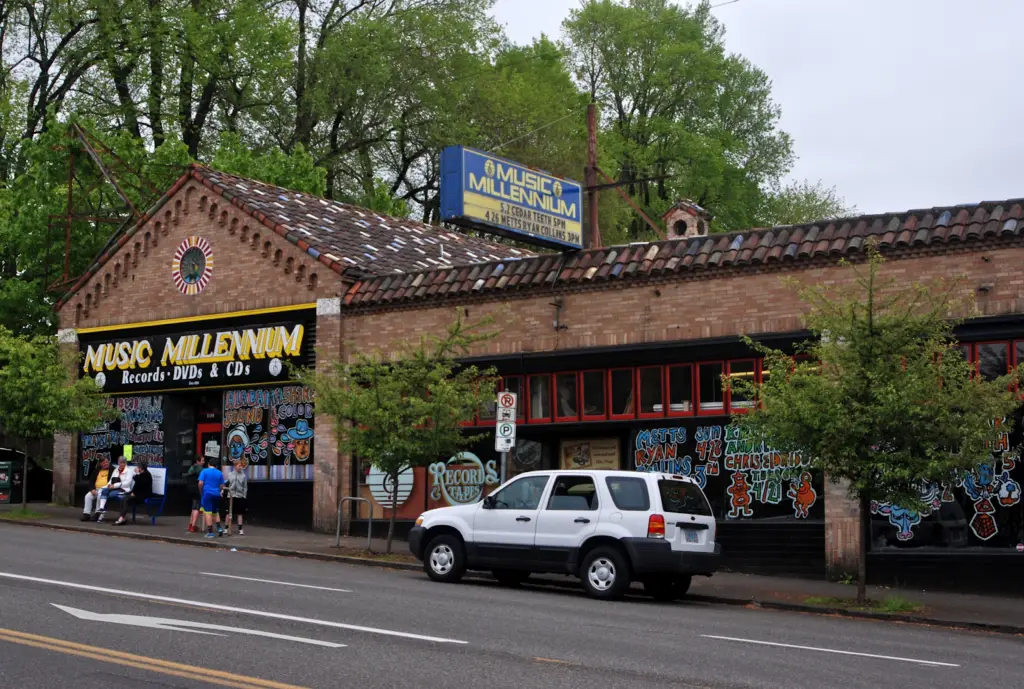
Wikimedia Commons
Opened in 1969, Music Millennium was a ’70s and ’80s treasure trove for the counterculture crowd. It had everything—psychedelic rock, jazz fusion, and early punk albums that felt like secret handshakes. Staffed by true music enthusiasts, the store became a hangout where recommendations turned into lifelong favorites. Music Millennium’s iconic listening stations let customers preview records, a revolutionary idea at the time. To this day, it’s one of the longest-standing independent record stores in the U.S., proof that passion and community can outlast changing trends.
6. Waterloo Records (Austin, TX)
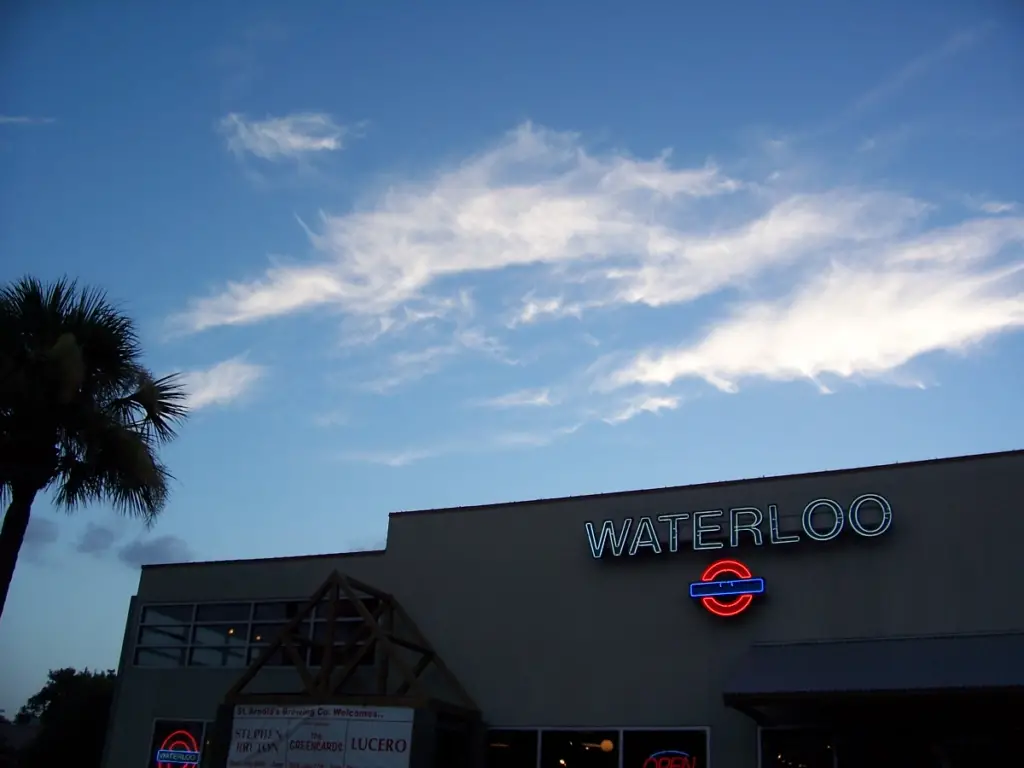
Wikimedia Commons
Austin’s reputation as the “Live Music Capital of the World” owes a lot to Waterloo Records. Opened in 1982, the store quickly became a local institution. Its walls were lined with records that celebrated Texas’s rich music scene, from outlaw country to blues and rock. Waterloo’s in-store performances were legendary, giving fans intimate access to artists like Willie Nelson and Stevie Ray Vaughan. But what made it truly special was its vibe—friendly, unpretentious, and deeply rooted in the love of music. It’s a store that felt like Austin itself: quirky, bold, and unforgettable.
7. Peaches Records & Tapes (Nationwide)
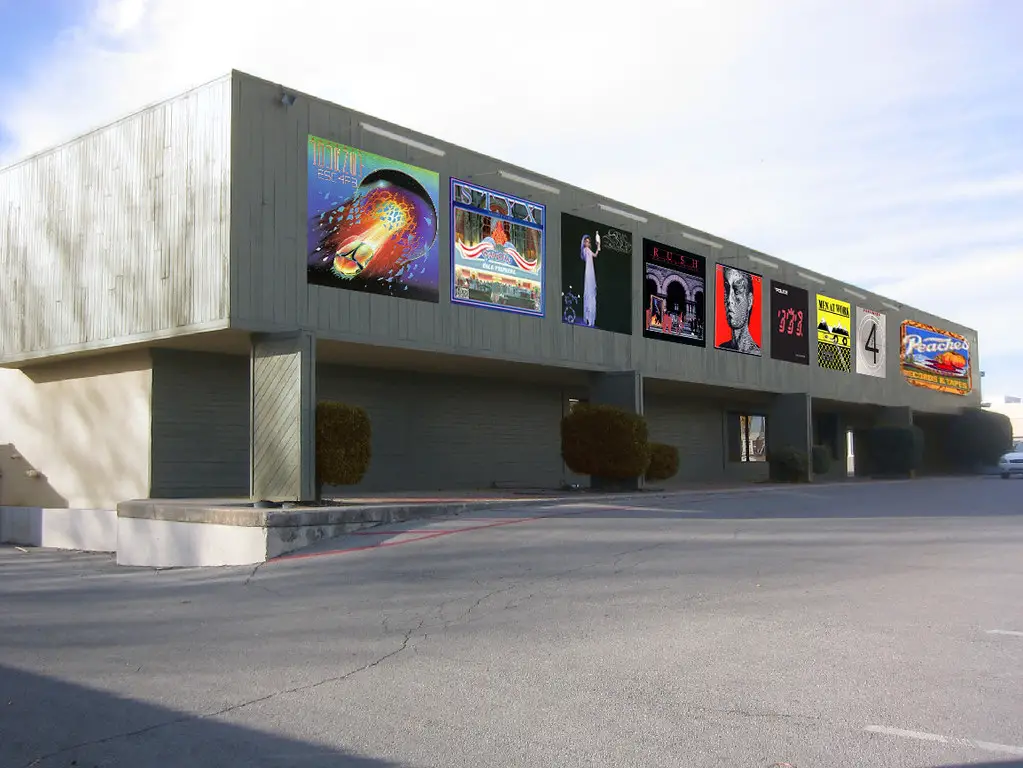
Flickr
Peaches wasn’t just a record store; it was a brand. With locations popping up across the U.S. in the ’70s, it became known for its crate-style album displays and signature orange-and-white logo. Peaches catered to every kind of music fan, stocking everything from disco to progressive rock. But its real charm was the atmosphere—larger-than-life murals, massive sales, and a sense of fun that made it feel more like a theme park for vinyl enthusiasts. Even decades later, the memories of Peaches’ vibrant heyday linger on.
8. Sounds (New York City, NY)
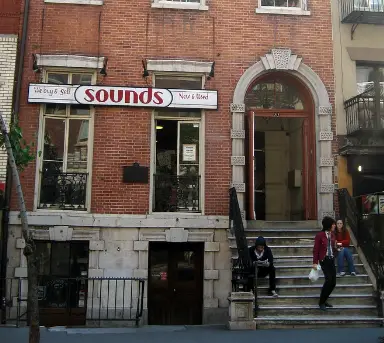
Flickr
Located in the East Village, Sounds was a haven for underground music lovers. If you wanted punk, new wave, or hardcore records, this was the spot. With its slightly chaotic layout and posters plastered everywhere, the store felt alive with the spirit of rebellion. Regulars loved digging through the bins, uncovering hidden gems and rarities. Sounds was more than a store; it was a portal to NYC’s thriving DIY music culture.
9. Reckless Records (Chicago, IL)
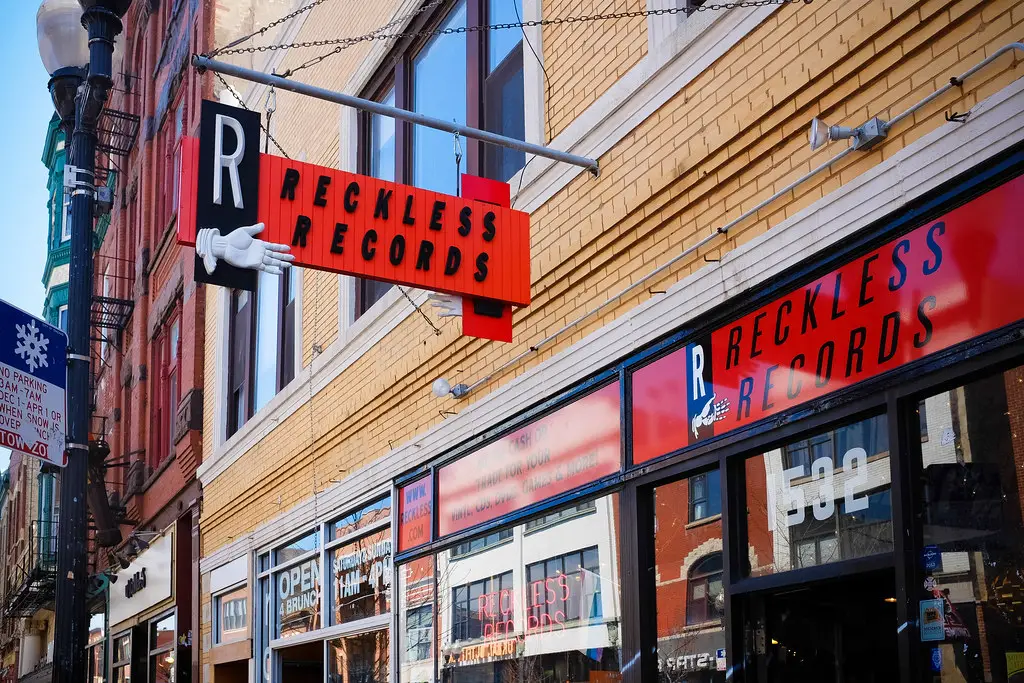
Flickr
Reckless Records carved out its place in Chicago’s music scene in 1988, but its roots in the ’80s are undeniable. Known for its eclectic mix of records and fiercely knowledgeable staff, Reckless became a go-to for punk, indie, and alternative fans. Walking into Reckless felt like being let in on a secret—there was always something cool waiting to be discovered. And the handwritten staff recommendations? Those were pure gold for anyone looking to expand their musical horizons.
10. Newbury Comics (Boston, MA)
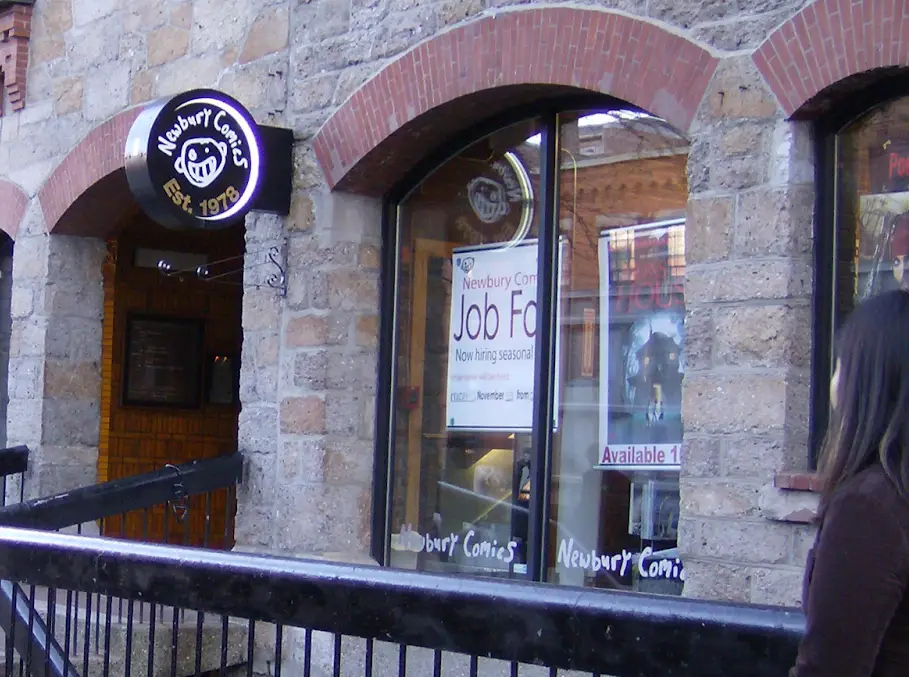
Wikimedia Commons
What started as a comic book store in 1978 became a cornerstone of Boston’s music scene in the ’80s. Newbury Comics was the spot where punk and alternative fans congregated, flipping through racks of vinyl to find their next favorite band. Known for its quirky staff and offbeat charm, it catered to those who thrived on counterculture. Beyond its stellar selection of records, Newbury was a meeting place for music lovers, a place where you could geek out about The Clash or Sonic Youth and feel right at home.
11. Sam the Record Man (Toronto, ON)
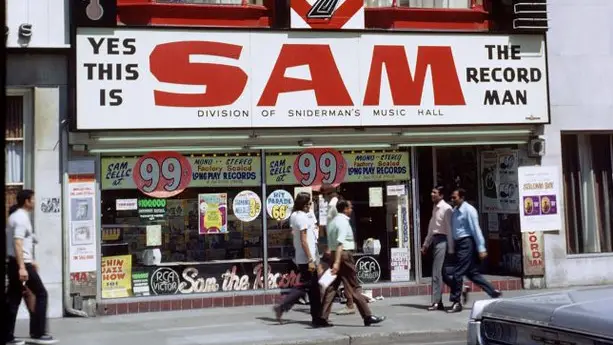
Flickr
Sam the Record Man was the beating heart of Canada’s music scene. Its Yonge Street location in Toronto, with the iconic neon spinning discs, became a landmark for generations of music lovers. The store had a legendary selection, boasting everything from international hits to obscure Canadian indie acts. In the ’70s and ’80s, stepping into Sam’s was like entering a music cathedral, where the passion for vinyl was palpable. Whether you were a die-hard Rush fan or exploring new sounds, Sam’s was where you found your groove.
12. Licorice Pizza (Southern California)
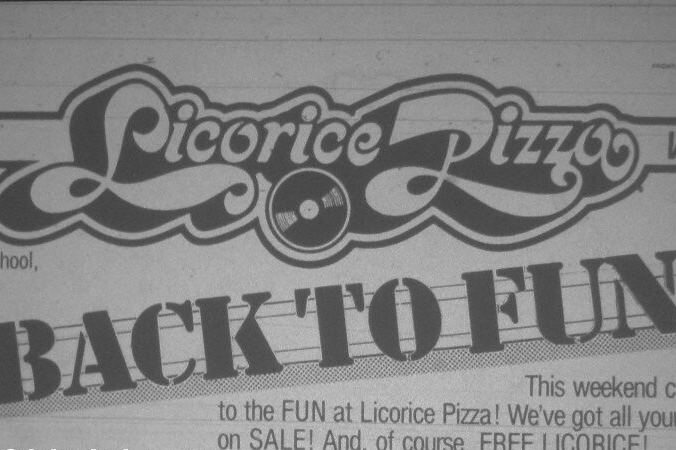
Flickr
The SoCal music scene wouldn’t have been the same without Licorice Pizza. With its quirky name (a nod to vinyl records that resemble a black licorice pizza) and laid-back vibe, the store captured the spirit of Southern California in the ’70s and ’80s. Licorice Pizza was more than a record shop; it was a cultural hotspot where locals discovered new artists and shared their love of music. Known for its friendly staff and eclectic inventory, it became a haven for anyone chasing that perfect sound.
13. Second Coming Records (New York City, NY)
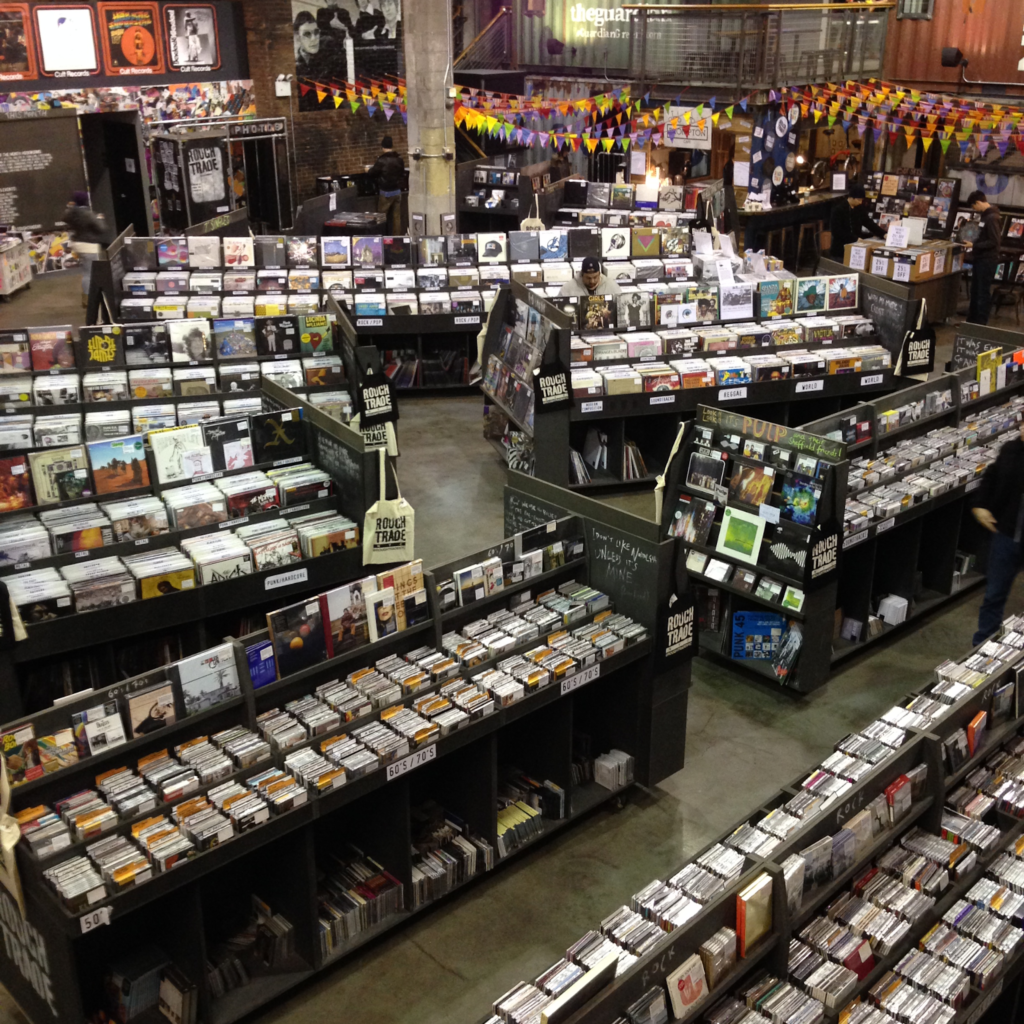
Wikimedia Commons
Second Coming Records was a staple of NYC’s St. Mark’s Place, perfectly capturing the edgy, rebellious spirit of the ’70s and ’80s music scene. The store was a treasure trove for punk, goth, and industrial fans, with racks of rare vinyl and underground releases you couldn’t find anywhere else. It wasn’t just a place to buy music—it was where you went to feel music culture. Regulars remember the atmosphere fondly: gritty, raw, and full of surprises.
14. The Last Record Store (Santa Rosa, CA)
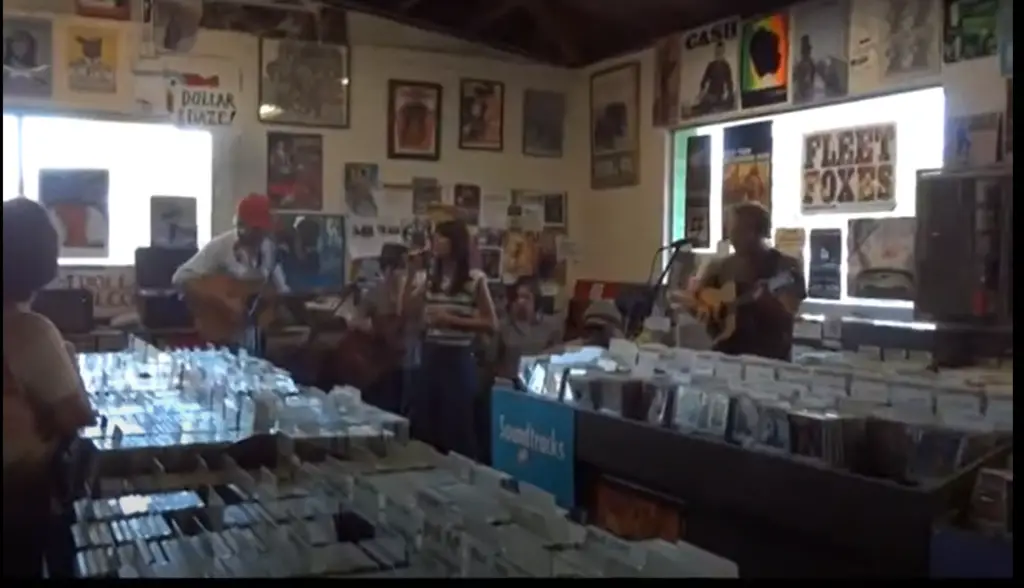
YouTube
With its fitting name, The Last Record Store opened in 1983 as vinyl was starting to compete with cassette tapes and CDs. Despite the odds, it became a sanctuary for music lovers in Sonoma County. Known for its wide-ranging collection and community-focused ethos, it catered to fans of everything from classic rock to avant-garde jazz. The store’s intimate vibe and passionate staff created a space where music was celebrated in all its forms. For locals, it was—and still is—a vital part of the cultural landscape.
15. Banana Records (San Diego, CA)
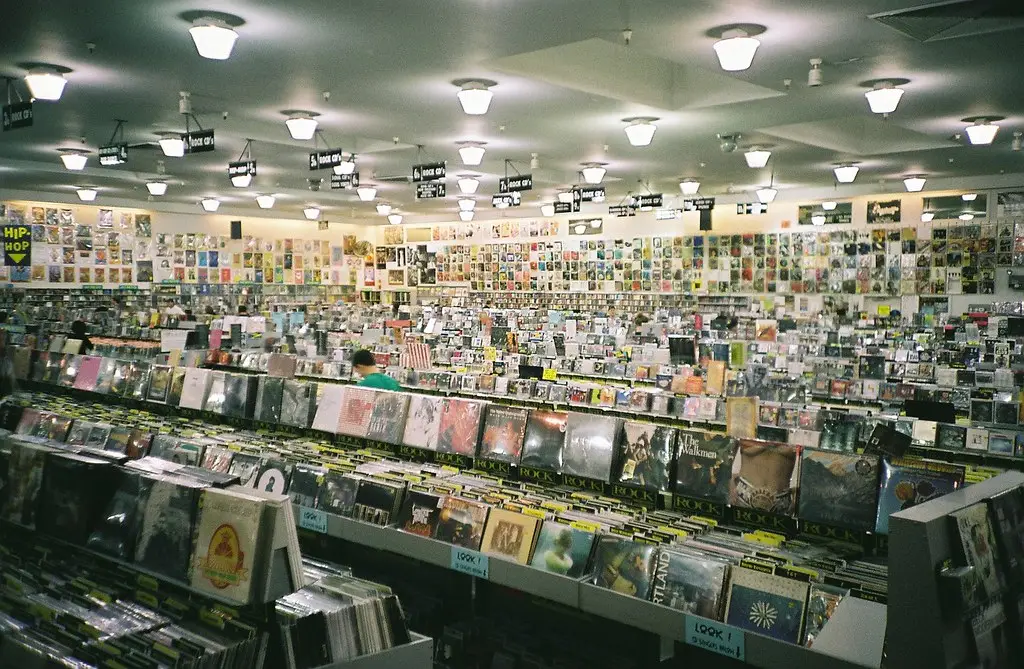
Flickr
Banana Records may not have been the flashiest record store, but it had soul. Nestled in the San Diego area, it became a favorite for crate diggers who knew the best finds were hidden treasures. The store had an incredible collection of used vinyl, and its affordable prices made it accessible to everyone, from broke college students to hardcore collectors. The staff’s laid-back, friendly demeanor made browsing feel like hanging out with old friends. Banana Records embodied the joy of music discovery, one crate at a time.
Each of these stores was more than a business—it was a cultural touchstone. They shaped tastes, fostered community, and offered an escape into the transformative power of music. Whether you visited one or all of these stores, they left an indelible mark on the soundtrack of the ’70s and ’80s.


